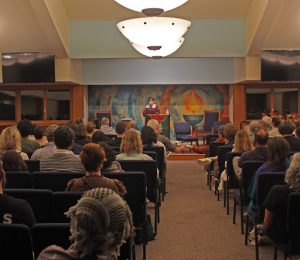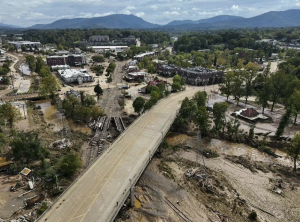Biden elevates science advisor to cabinet
The president chose Dr. Eric Lander, a geneticist who founded the Broad Institute at MIT and Harvard, for the role
January 28, 2021
President Joe Biden has chosen geneticist Dr. Eric Lander for the role of science advisor to the president, which will be a cabinet-level position for the first time in history. As presidential science advisor, Lander will guide President Biden and other executive officers on issues related to science and technology.
Per the American Institute of Physics, Lander graduated with a degree in mathematics from Princeton University and went on to study as a Rhodes Scholar, earning his PhD in mathematics from the University of Oxford. He taught economics at Harvard for five years before beginning a storied career as a molecular biologist in 1986, when he joined MIT’s Whitehead Institute for Biological Research. By the age of 30, he’d earned the MacArthur Foundation fellowship, commonly known as the Genius Grant. The $625,000 award recognizes “talented individuals who have shown extraordinary originality and dedication in their creative pursuits and a marked capacity for self-direction.”
Lander is renowned for his leading role in the Human Genome Project (HGP), an international effort to sequence all three billion DNA pairs composing the human genome. Lander also served as the founder and president of the Broad Institute, a genomics research center, from 2004 until his recent resignation to join the cabinet. The Broad Institute is the largest producer of human genomic information in the world and has spearheaded projects like the HapMap, a catalog of common genetic variants, and the Cancer Genome Atlas, which identifies mutations responsible for cancer.
Techniques and technology associated with the HGP and Broad Institute were critical in the rapid sequencing of COVID-19 — which came less than two weeks after the virus was first identified — and vaccine development. The institute also continues the collaborative approach to science of the HGP. All of its data is available for scientists around the world to use. Lander’s history suggests that as a member of Biden’s executive team, he’ll work with other nations to address issues like climate change and the pandemic, contrasting the isolationist mindset of the Trump administration.
Many members of the scientific community are thrilled with Lander’s nomination. As reported by Wink News, National Institutes of Health director Dr. Frances Collins called Lander “brilliant, visionary, exceptionally creative and highly effective in inspiring others.” Lander was described as “a polymath, a superb scientist and scientific leader and a deeply committed exponent of bringing science and technology to bear on improving the human condition” by Obama-era science advisor Dr. John Holdren, per The Washington Post.
Lander’s nomination has also been met with some criticism. An article published in Scientific American chided President Biden for choosing a white man as the first cabinet-level science advisor, especially considering recent racial justice movements and the disproportionate impact of COVID-19 on communities of color. The article also criticizes Lander for publishing a report that downplayed the accomplishments of two female scientists.
These are reasonable critiques: we should always strive for diversity and hold public officials accountable. However, Biden’s executive team is one of the most diverse in American history. Within Biden’s core science team are Alondra Nelson, Kei Koizumi and Michael Regan, all people of color, and the Cabinet includes Latinx, LGBTQ and Native American members. Lander will be joined in advising the president by two female scientists, Maria Zuber and Frances Arnold.
The Biden administration’s prioritization of science is a stark divergence from the Trump administration’s. According to Nature, Trump left the position of science advisor vacant for 18 months, and the administration oversaw a disastrous COVID-19 response, withdrawal from the Paris climate accords and reversal of over 100 environmental regulations.
In a letter to Dr. Lander, Biden outlined his priorities for the next four years. He aims to improve public health, cement the United States as a scientific world leader, combat climate change, create new jobs and ensure the benefits of scientific advances are available to all Americans.
“I believe it is essential that we refresh and reinvigorate our national science and technology strategy to set us on a strong course … so that our children and grandchildren may inhabit a healthier, safer, more just, peaceful and prosperous world,” Biden wrote.
As Dr. Lander says in his podcast Brave New Planet, “The future is on the line today in ways it’s never been before, and the decisions we make or don’t make will affect us all for generations to come.”












